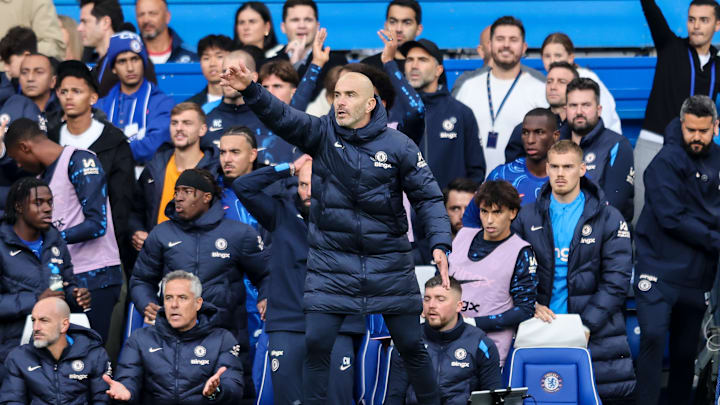Frontline Pressing Responsibilities
Forwards Nicolas Jackson and Cole Palmer had dual responsibilities within the high press. When the Blues forced play to one side, one of them would press Bruno Guimarães, Newcastle's deep-lying midfielder, while the other curved their run to cut off passing options to the opposite center-back. Chelsea's wingers focused on pressing the away team's full-backs, limiting Newcastle’s ability to switch play and containing their build-up on one side.
The primary objective of Chelsea’s zonal high press was to maintain a +1 defensive advantage against Isak, one of the Premier League's most dynamic forwards. Isak’s versatile skill set made him a potent threat both in behind the high line and when dropping deep to link up play. By maintaining this additional defender in the backline, Chelsea’s center-backs could step up aggressively on Isak while preserving defensive cover.
Execution Flaws in Dual Responsibilities
While the west London team's zonal setup had a strong foundation, issues arose with the dual responsibilities of their frontline pressers. A lapse occurred in the second minute as Newcastle built from a goal kick, with Chelsea allowing Guimarães to find space due to a lack of coordination in midfield. Despite setting up with a numerical overload, Chelsea’s press shape left Guimarães unmarked, enabling Newcastle to progress possession into Chelsea's penalty area.
A similar scenario played out in the third minute, where Dan Burn opted to go long after Jackson managed to track Guimarães more effectively. However, inconsistent execution of marking duties occasionally hampered Chelsea’s pressing game. In the 23rd minute, for example, Jackson initially forced Newcastle down their right, but as play progressed, Lavia shifted to Tonali, leaving Guimarães free. This confusion between Lavia and Jackson highlighted the need for stronger communication within Chelsea’s pressing structure.
